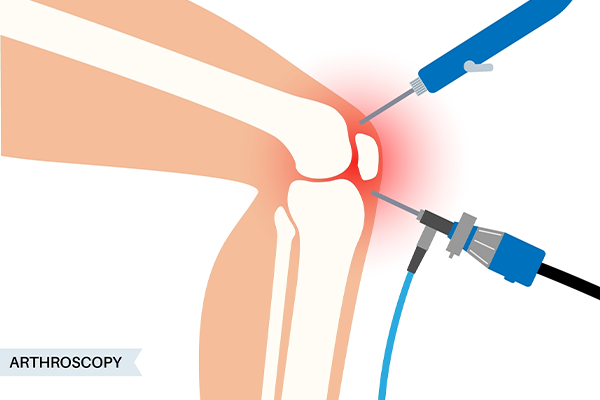
Total knee surgery offers hope and renewed freedom when chronic knee pain and mobility issues affect your daily life. The operation is meant to alleviate pain, restore function, and enhance the patient's life with severe arthritis or knee injuries. The more you know about what to expect preoperatively, perioperatively, and postoperatively, the better you can prepare both mentally and physically for this new chapter in your life. Our orthopaedic surgeons in Patiala give expert care and deliver it with compassionate care at every step.
In this blog, we take you through the phases of a total knee replacement surgery, including unilateral total knee replacement surgery versus bilateral total knee replacement and the role of total knee replacement x-ray in planning and recovery. Let us see how this transformative procedure works and how you can get the best outcome with the guidance of our dedicated team of specialists.
Synopsis
What Is Total Knee Replacement Surgery?
-
Total knee replacement surgery involves removing damaged parts of the knee joint and replacing them with artificial components made of metal and plastic.
-
This surgery is typically recommended for patients experiencing debilitating pain from osteoarthritis, rheumatoid arthritis, or post-traumatic arthritis when conservative treatments no longer provide relief.
Our orthopaedics in Patiala explain that the goal is to restore normal knee movement, reduce pain, and help patients return to everyday activities with confidence.

Types of Total Knee Replacement Surgery
There are two main types of knee replacement surgeries, depending on whether one or both knees need replacement:
-
Unilateral Total Knee Replacement Surgery: This involves replacing one knee joint and is suitable when arthritis or damage is mostly limited to one side. This approach usually has a shorter recovery time.
-
Bilateral Total Knee Replacement: In this more comprehensive surgery, both knees are replaced, either at the same time (simultaneous) or staged (separate surgeries). This is beneficial for patients with severe disease in both knees and can reduce total recovery time.
Our experienced orthopaedics in Patiala meticulously evaluate your condition to recommend the most appropriate surgical option for your needs.
Preparing for Total Knee Replacement Surgery
-
Before undergoing total knee replacement surgery, thorough assessments, including physical exams, blood tests, and imaging studies, are performed.
-
A total knee replacement X-ray helps our surgeons understand the extent of joint damage and plan the operation precisely.
Our orthopaedics in Patiala work closely with you to optimise your health before surgery. This includes managing any coexisting medical conditions, discussing anaesthesia options, and setting realistic expectations for recovery.
What Happens During Surgery?
-
On the day of surgery, after administering anaesthesia (usually spinal or general), the surgeon makes an incision over the knee to expose the joint.
-
Damaged bone and cartilage from the thigh bone (femur), shin bone (tibia), and kneecap (patella) are carefully removed. The surfaces are then shaped precisely to fit the artificial components—a metal femoral component, a plastic spacer, and a metal tibial component.
-
The new artificial knee is secured in place, the incision is closed carefully, and the leg is bandaged. The entire procedure typically takes about one to two hours.
Throughout surgery, your safety and comfort are paramount, and our orthopaedics in Patiala employ modern techniques and technologies to ensure precision and minimise complications.
Postoperative Care and Recovery
-
Immediately after surgery, pain management and early mobilisation are prioritised.
-
Physical therapy begins within 24 hours to improve knee movement and build strength.
Our orthopaedics in Patiala emphasise the importance of guided rehabilitation to ensure a smooth recovery.
-
Hospital stay usually lasts a few days, during which your progress, wound healing, and mobility are closely monitored.
-
Regular follow-up visits include total knee replacement X-ray imaging to assess the implant’s position and healing.
-
Most patients regain significant function within 3 months, but full recovery can take up to a year, depending on individual factors and commitment to physiotherapy.
Benefits and Risks
Total knee replacement surgery offers dramatic relief from chronic pain and greatly improves mobility and quality of life.
Patients often return to activities like walking, gardening, and even low-impact sports.
Risks include:
-
Infections
-
Blood clots
-
Implant loosening
-
Nerve damage
but are minimised by expert surgical techniques and careful postoperative care.
Our orthopaedics in Patiala ensure you are well-informed about risks and supported throughout recovery.
Why Choose Orthopaedics in Patiala for Your Knee Replacement
Choosing experienced surgeons is critical for optimal outcomes. Our orthopaedics in Patiala bring years of expertise, personalised care, and access to the latest medical technology. From initial consultation to rehabilitation, they provide individualised treatment plans focusing on your goals and wellbeing.
During total knee replacement surgery or bilateral total knee replacement, patients find compassion, clear communication, and a team approach that nurtures healing.
A total knee replacement puts people back on the road to the freedom of healthy motion and the freedom from pain. Whether it is unilateral total knee replacement surgery or bilateral total knee replacement, the right hands and a caring team really do matter. Contact our expert orthopaedics in Patiala and begin your journey toward contented movement and a better quality of life.
FAQ's
It’s a surgical procedure where damaged knee joint parts are removed and replaced with artificial implants to relieve pain and restore function.
Unilateral surgery replaces one knee joint, while bilateral surgery replaces both knees either simultaneously or in two stages.
Total knee replacement X-ray helps surgeons assess joint damage before surgery and monitor implant positioning during recovery.
Most patients resume daily activities within 3 months, with full recovery possible within a year, depending on rehabilitation.
Our orthopaedics in Patiala offer personalised care, advanced techniques, and comprehensive support, ensuring safe surgery and effective recovery.





















 5 Min Read
5 Min Read

















